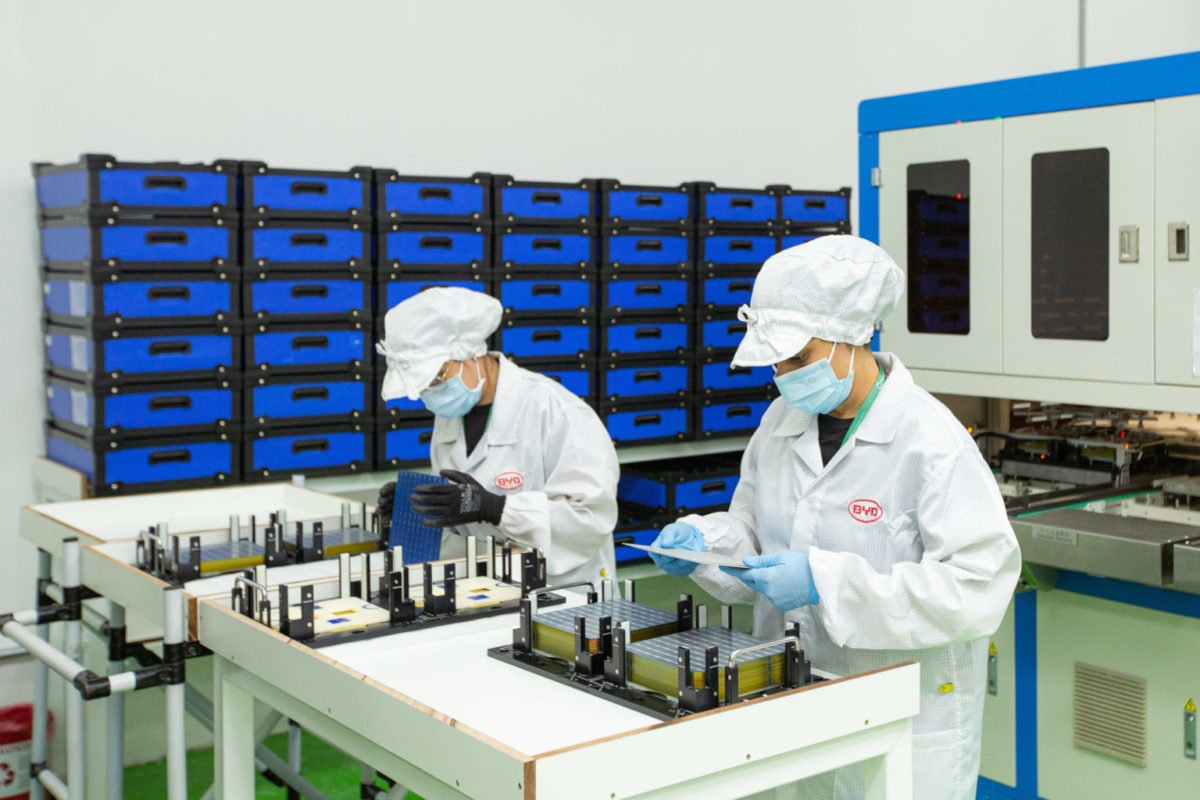From pv magazine Brazil
Chinese solar, battery and EV manufacturer BYD announced it will set up a production line for n-type solar modules based on tunnel oxide passivated contacts (TOPCon) technology at its factory in Campinas, Sao Paulo, Brazil.
The company said the bifacial modules will have a power conversion efficiency of 22.2%, a nominal power of 575 W, and a temperature coefficient of -0.32% per C.
“We will be the first company to produce these panels in Brazil. This shows the great pioneering spirit of BYD Energy, a company that is always bringing cutting-edge technology to the country,” stated Marcelo Taborda, Sales Director at BYD Energy do Brasil.
Popular content
The factory in Campinas reopened in April. The production line and processes were upgraded with the latest technologies such as multi-busbar, half-cell, and 1/3 cut cell. “The new 575 W n-type TOPCON module was developed in Brazil, by Brazilian engineers, specifically for our market,” said Rodrigo Garcia, R&D manager at BYD Energy do Brasil.
The new production lines also allow the factory to become compatible with all solar cell sizes currently available on the market. The facility now has a capacity of 500 MW and produces panels with power outputs ranging from 450 W to 670 W.
The factory opened in 2017 with an annual capacity of 200 MW, with the support of Apex-Brasil, the Brazilian government's trade and investment promotion agency. Solar projects that feature Brazilian-made components can obtain financing from the Brazilian Development Bank and Banco do Nordeste.
This content is protected by copyright and may not be reused. If you want to cooperate with us and would like to reuse some of our content, please contact: editors@pv-magazine.com.


2 comments
By submitting this form you agree to pv magazine using your data for the purposes of publishing your comment.
Your personal data will only be disclosed or otherwise transmitted to third parties for the purposes of spam filtering or if this is necessary for technical maintenance of the website. Any other transfer to third parties will not take place unless this is justified on the basis of applicable data protection regulations or if pv magazine is legally obliged to do so.
You may revoke this consent at any time with effect for the future, in which case your personal data will be deleted immediately. Otherwise, your data will be deleted if pv magazine has processed your request or the purpose of data storage is fulfilled.
Further information on data privacy can be found in our Data Protection Policy.